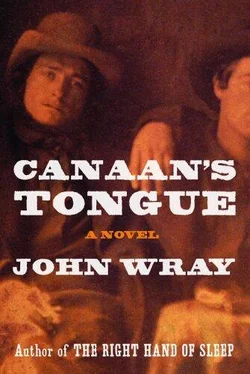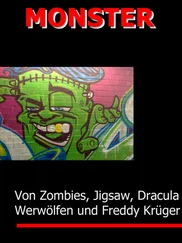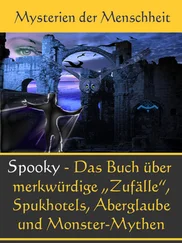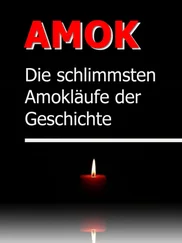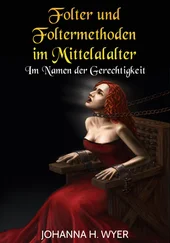Parson’s left eye opened. “Collar-bone’s broke, Captain.”
I could only sob in answer. Parson regarded me in his cold, contented way, keeping his right eye closed, shifting his weight every so often with an indolent little coo.
“We’re past due for Memphis,” he observed after a time.
“Bugger Memphis!” I hissed, trying a second time to rise. I must have looked for all the world like a pilgrim genuflecting in front of a wax effigy of the Pope.
“Tell me, Captain,” Parson said, looking down the crook of his nose at me. “That eye of yours—: that blessed far-seeing ball of jelly.” He turned his head clock-wise until his neck cracked. “Did it show you many wonders, as you quit this life?”
The pain in my shoulder lessened for a moment and I staggered to my feet. “It showed me all manner of things, Parson,” I said, struggling to keep from falling backwards. “I saw the cloud you travel under, for one. Your own portable saintly nimbus.” I spat onto the floor. “It was the color of rotten bile.”
“You do have the gift,” Parson said admiringly.
“It’s the Jew in him,” Trist offered.
Slowly, painfully, I worked the fingers of my right hand into a well-known gesture of contempt.
“He’s giving us the fig!” Trist said, pointing at me delightedly.
“The yellowjack take the both of you,” I croaked.
Parson bit his lip in mock concern. “You’ll have to get us a fair piece up-river yet, Captain, for us to honor that request. “
I spat at him and made wobblingly for the ladder. I’d not taken three steps, however, when a new thought struck me. I glanced back at Parson.
“How did Ziba come to be down here? He had no business in the hold.”
Parson raised his eye-brows. “Didn’t you know, Virgil? Our commander-in-chief had him stowed for safe-keeping. He’d gotten flighty, it appears.”
So this was Redeemer’s doing. His by order and design. Why it should have surprised me so, why it should have washed my mind clear of all else, I can’t rightly explain—; but it turned me irrevocably on my head.
I kept silent for a time, finding a place for this latest revelation in my thoughts—; relating it, slowly and painstakingly, to the history of my tenure in the Trade. The fact that I’d not been told about Ziba did not bode well for me, of course—; but I had no thoughts for the future. The present was more than enough for me. The Redeemer had brought this hell-on-earth about—: my own Thaddeus Morelle. My own.
“Where are the pistols?” I said, looking about me on the floor.
“Ah!” said Parson. “Trist has one of them—; you’re welcome to it, I’m sure. As for the other—”
He planted his palms lightly on the floor, lifted himself without untwining his legs, and slid a foot or so to his left. Trist stepped away as well, and thus three corpses were exposed, stacked one atop the other like sacks of rice at market. At the bottom was the white-hair, his immense frame loose and slack-boned now, Ziba’s pistol clenched in his left fist. Ziba himself was next, laid the other way round, with his battered head resting against the thighs of his executioner. Both were arranged neat as funeral-house cadavers, their arms bound tightly at their sides.
At the top was a third body, much slighter than the others.
“Ah! Jesus,” I said weakly.
The body was that of a rail-thin boy, perhaps eleven years of age. For some private reason of Parson’s he was arranged exactly as Parson was himself, with his legs crossed loosely under him and his back supported by the hold. His mud-colored eyes hung indifferently open. In the center of his forehead was a small red hole, a clean and perfect circle, its edge lightly speckled with powder-marks.
“Who shot that child?” I whispered.
Trist gave a guffaw. “ You did, Captain!”
“Neat shooting, that, for a hand-puppet in the dark,” Parson said silkily.
It was then I decided to murder the Redeemer.
The rising People, hot and out of breath, Roared around the palace: “Liberty or Death!” “If death will do,” the King said, “let me reign; You’ll have, I’m sure, no reason to complain.”
— Ambrose Bierce
WE PULLED INTO MEMPHIS AT NOON, Virgil says. A day and a night had passed since Ziba’s killing.
I’d never delivered contrabands in daylight before, but Parson promised me not a soul would care—: the Yellowjack had the keys to the city now. The look on his face put me in mind of the mayor of Sodom returned home after a holiday. He clapped me on the back— which caused me to gasp aloud with pain — and breathed deeply of the air. “Look yonder, Captain,” he said sweetly, pointing up the bluff. At the top of it the customs-house was burning.
I brought us in slowly, easing up to the pier so that Trist wouldn’t strangle himself in the hitching-rope. Since my vow of murder two nights before, I was resolved to become a model citizen in my associates’ eyes. My chance with Morelle would come quickly enough, and I was not impatient. I could no longer quite conceive of the world without him, I discovered—; and I was in no great hurry for apocalypse.
Apocalypse, however, chose not to wait on my convenience.
Having tied and weighted the line, we pulled out the gang-planks and laid them flat, as with any other delivery. The niggers had been quiet as deer since the uprising, taking the water Trist brought them but refusing all food. I knew Parson well enough to expect no great help from him, but I reckoned the lingering effects of his hoo-doo might yet be strong enough for us to finish the run, provided he accompanied us to Stacey’s. Even this small hope, however, proved a vain one. As I stepped onto the pier I caught sight of him, already well up the road to town, moving with swift, bobbing strides, like a silk-skirted daddy-long-legs.
Trist and I watched him steal away. “Sure you wouldn’t rather follow Parson, Asa?” I asked. “He’d show you a livelier time than I ever could. Just look at how he prances.”
“Not a bit of it, Captain!” Trist sang out, clicking his heels together. I was once again, apparently, the apple of his eye. My scalp prickled at the merest thought of it.
“I’m sure you could teach me more than he ever could, about the business-end of things,” he said, raising his skittish eyes to mine.
“I’ve seen the business-end of things, all right.”
He gave a squeal of delight at this. “You mean — you mean it would be acceptable to you — if I—”
“Get that mid-hatch open,” I muttered. “Go on!”
The truth of it was that I needed him direly. With Ziba dead, my collar-bone broken, and Parson off God knows where, I stood as much chance as a one-legged man in an arse-kicking match.
The twenty-three head stowed amidships came up readily enough. Two hung back below deck, cramped and exhausted from close quarters, but Trist coaxed them up the ladder smartly. A few minutes later they were coffled together and ready to march, and the same held true for the stern hold. There was no delaying it any longer.
Slowly, ruefully, I walked with Trist up to the bow. I stood by the front hatch a moment, then gave him a stiff-lipped nod.
“Look lively now, Asa,” I whispered, gripping the butt of my one-shot. “Christ knows what they’ll do when they see it’s just the two of us.”
“Oh! They won’t be any bother,” Trist said breezily.
“Won’t they?”
He smiled down at the hatch. “You saw as well as I did. Parson put the fear of God into them.”
Читать дальше
